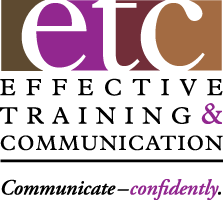I love using quotes in my writing and presentations – I really do.They can add sizzle, credibility or perspective to the message. However, I’m adamant about including author details.
Few people are so well known that they don’t need any reference, like Abraham Lincoln, Mark Twain, Winston Churchill or Dr. Martin Luther King, Jr. For the rest, we need to answer the question readers or listeners often have – ‘So … who is that person?’
It doesn’t take much time or effort to go beyond just listing ‘Tom Peters‘… to ‘Tom Peters, contemporary American management expert & author of ‘In Search of Excellence’. Same goes for ‘Oscar Wilde, 19th century Irish poet, playwright & novelist’, ‘Voltaire, 18th century French writer, historian & philosopher’ and ‘Leonard Foonman, 20th century American humorist & writer’. Thank you Wikipedia!
Not adding that information can weaken the value of the quote, because ‘who’ said it and ‘when’ may be more important than ‘what’ he or she said. When listeners or readers encounter quotes without identification, they might think the writer or speaker was too lazy or indifferent to find out that information – not good for their image. Or, they assumed everyone knew who that person was … possibly making some people feel dumb when they shouldn’t. Also not good for reinforcing a positive image.
So, harness the power of quotes effectively, but take the extra effort to indicate author source details. And … you can quote me!
Phil Stella, contemporary workplace communication consultant, writer and executive coach.
